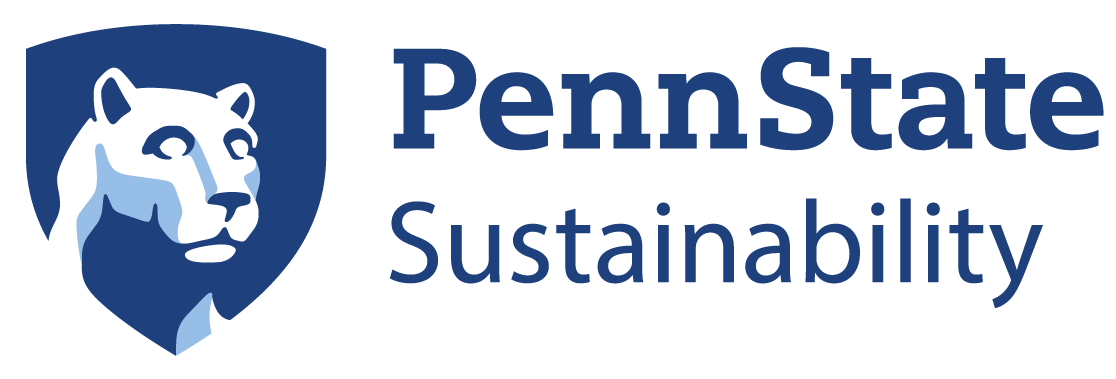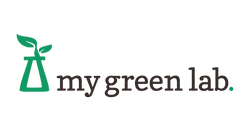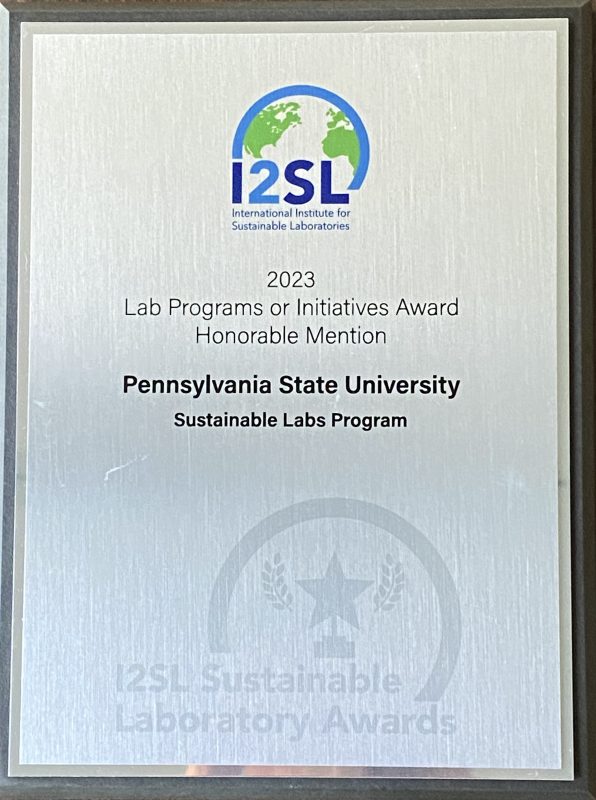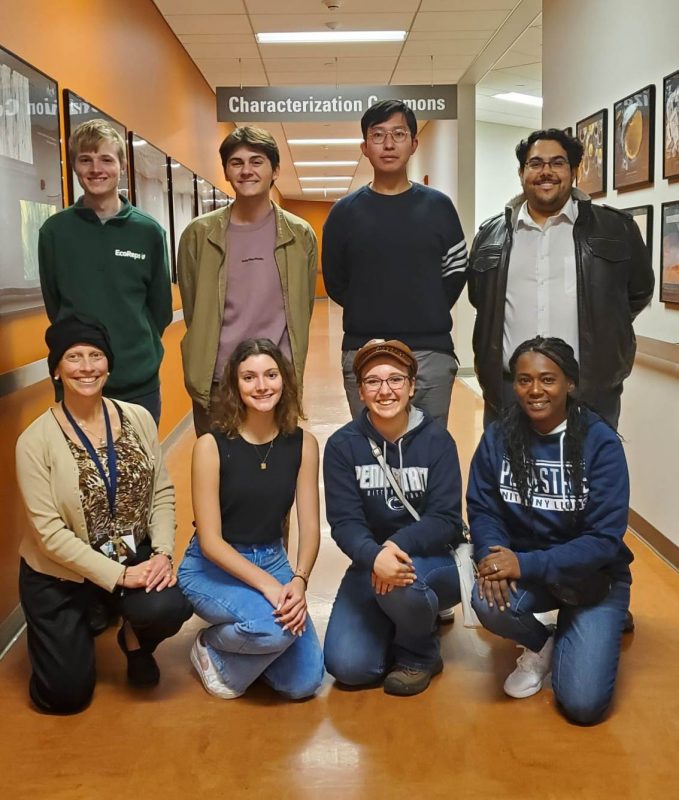
About the Program
The Sustainable Lab Program is motivated by the recognition that research itself contributes to sustainability challenges by being naturally energy and resource intensive. Penn State is taking on this challenge by partnering with the nonprofit My Green Lab (MGL), and utilizing their certification program that assesses 14 target areas for behavioral change.
Registration for 2026-27 info sessions now open!
The Sustainable Labs program is seeking interested labs for next year’s cohort. Labs at all Penn State campuses are invited to apply. Interested lab members are encouraged to review the information available on this webpage as well as the info session recoridng linked above before applying.
The Sustainable Labs program is seeking interested labs for next year’s cohort. Labs at all Penn State campuses are invited to apply. Interested lab members are encouraged to review the information available on this webpage as well as the info session recoridng linked above before applying.
Two info sessions will be offered in Spring ’26, with applications for our next cohort opening afterwards.
Review a recording of last year’s info session about the program.
Any questions can be sent to Jack Rumery (jackery7@psu.edu)


Sustainable Lab Consultant (SLC) applications
Undergraduates at all Penn State campuses are encouraged to apply for the next SLC cohort (formerly known as Sustainable Lab Consultants or SLCs). More information is provided below and in the application. Please direct any questions related to the SLC program to Krista Bailey (kbailey@psu.edu).
Applications are considered on a rolling basis. Priority is given to applications received prior to spring break (by midnight on Sunday March 8, 2026). Placement of SLCs is dependent on the number of labs who apply and join the program. If any labs join late, we may continue to interview and place prospective SLCs through the summer.
SLC applicants must be available for trainings on Tuesdays from 3:05-4:20pm throughout the Fall 2026 semester (spring semester days/times TBD).
Learn more about the program, what you learn, and what you can do by attending an upcoming Informational Session.
- In-Person (UP campus): Monday, February 9 from 1:30-2:15 in the HUB at Info Table #7 and Rm 009 (near the aquariums)
- Online Tuesday February 17 from 3:30-4:00. A short presentation will be given by second year “senior” Sustainable Lab Consultants providing an overview of the position, tasks, potential impact of the role and skills gained from it.
My Green Lab Certification
Penn State has an established partnership with My Green Lab (MGL) and has adopted their Certification program as a core component of our University’s Sustainable Lab Program. MGL is widely recognized as the gold standard in sustainable lab practices, endorsed by the UN Race to Zero Campaign. While approximately fifty percent of MGL’s clients are pharmaceutical and chemical companies, they are actively expanding their work with universities. Unlike standard sustainability checklists, MGL’s program focuses on fostering behavior changes and sparking meaningful discussions among researchers about opportunities for improvement across fourteen key categories:

Frequently Asked Questions
Congratulations to the labs that have attained My Green Lab Certification!




 The Penn State Sustainable Lab Consultant (SLC) program is an engaged scholarship approach to creating a more sustainable research lab culture and operation,
The Penn State Sustainable Lab Consultant (SLC) program is an engaged scholarship approach to creating a more sustainable research lab culture and operation, 
